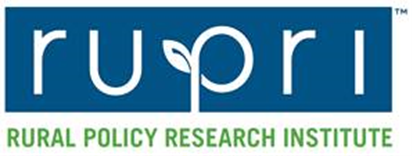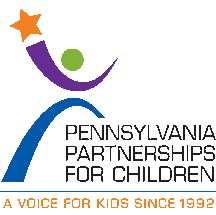- Public Inspection: CMS: Medicare Program: Implementation of Prior Authorization for Select Services for the Wasteful and Inappropriate Services Reduction Model
- CMS: Secretarial Comments on the CBE's (Battelle Memorial Institute) 2024 Activities: Report to Congress and the Secretary of the Department of Health and Human Services
- HHS: Patient Protection and Affordable Care Act: Marketplace Integrity and Affordability
- HRSA Announces Action to Lower Out-of-Pocket Costs for Life-Saving Medications at Health Centers Nationwide
- Public Inspection: HHS: Patient Protection and Affordable Care Act: Marketplace Integrity and Affordability
- Increased Risk of Cyber Threats Against Healthcare and Public Health Sector
- Eight Hospitals Selected for First Cohort of Rural Hospital Stabilization Program
- Announcing the 2030 Census Disclosure Avoidance Research Program
- CMS: Medicare Program; Hospital Inpatient Prospective Payment Systems for Acute Care Hospitals and the Long-Term Care Hospital Prospective Payment System and Policy Changes and Fiscal Year 2026 Rates; Requirements for Quality Programs; and Other Policy Changes; Correction
- CMS: Medicare Program; Hospital Inpatient Prospective Payment Systems for Acute Care Hospitals and the Long-Term Care Hospital Prospective Payment System and Policy Changes and Fiscal Year 2026 Rates; Requirements for Quality Programs; and Other Policy Changes; Correction
- CMS: Medicare and Medicaid Programs; Contract Year 2026 Policy and Technical Changes to the Medicare Advantage Program, Medicare Prescription Drug Benefit Program, Medicare Cost Plan Program, and Programs of All-Inclusive Care for the Elderly; Correction
- CMS: Medicare and Medicaid Programs; Contract Year 2026 Policy and Technical Changes to the Medicare Advantage Program, Medicare Prescription Drug Benefit Program, Medicare Cost Plan Program, and Programs of All-Inclusive Care for the Elderly; Correction
- CMS: Medicare Program; Prospective Payment System and Consolidated Billing for Skilled Nursing Facilities; Updates to the Quality Reporting Program for Federal Fiscal Year 2026
- CMS: Medicare Program; FY 2026 Hospice Wage Index and Payment Rate Update and Hospice Quality Reporting Program Requirements
- Public Inspection: CMS: Medicare Program: Fiscal Year 2026 Hospice Wage Index and Payment Rate Update and Hospice Quality Reporting Program Requirements
New Brief Addresses Metro-Non-metro Clinician Performance with MIPS

Differences in the Merit-based Incentive Payment System (MIPS) Performance of Clinicians in Metropolitan and Nonmetropolitan Counties in 2018
Mina Shrestha, PhD; Lili Xu, MS; Hari Sharma, PhD; Fred Ullrich, BA; A. Clinton MacKinney, MD; Keith Mueller, PhD
The Merit-based Incentive Payment System (MIPS) is a pay-for-performance system for clinicians under the Medicare Quality Payment Program designed to reward clinicians providing higher quality of care and lower costs. This study compared clinicians’ MIPS performance in 2018 based on their practice location, size, and minority population proportion.
Key Findings:
- The overall performance in the MIPS program was comparable for metropolitan and nonmetropolitan clinicians. However, a smaller proportion of nonmetropolitan clinicians were likely to receive exceptional performance payments.
- Most of the clinicians receiving reduced payments were in solo practice in both metropolitan and nonmetropolitan areas.
- Clinicians serving a high proportion of minorities were less likely to get exceptional performance payments but were also less likely to have their payments reduced under MIPS.
Nonmetropolitan clinicians had a lower total risk-adjusted Medicare Spending Per Beneficiary than metropolitan clinicians indicating that nonmetropolitan clinicians have lower Medicare spending for similar beneficiaries.
Pennsylvania Rural Health Advocate Receives Doctoral Program Scholarship
 Lannette Fetzer, quality improvement coordinator and certified AgriSafe Nurse Scholar in the Pennsylvania Office of Rural Health (PORH), is the recipient of the 2023 Preventive Measures Legacy Scholarship Award from the Preventive Measures Foundation.
Lannette Fetzer, quality improvement coordinator and certified AgriSafe Nurse Scholar in the Pennsylvania Office of Rural Health (PORH), is the recipient of the 2023 Preventive Measures Legacy Scholarship Award from the Preventive Measures Foundation.
PORH is administratively located in the Department of Health Policy and Administration in Penn State’s College of Health and Human Development on the University Park campus.
The scholarship recognizes Fetzer’s academic aptitude exhibited in the essay titled “Impact on Humanity,” which she submitted with her application. Fetzer reflected on her experience growing up in a large family and the intergenerational connectedness she experienced, which led her to pursue a nursing career. Fetzer integrates perseverance, dedication and empathy in her professional and personal interactions to “give back and pay forward” the gifts she was given by her family.
A lifelong learner, the scholarship will support Fetzer’s doctorate of nurse practice degree at Frontier Nursing University, where she will focus on quality improvement theories, processes and programs. Her doctorate of nurse practice project will address quality improvement following the “Model for Improvement” from the Institute for Healthcare Improvement. Fetzer will apply the knowledge and skills gained in her graduate studies to improve patient care and enhance current health care policies.
“I am very humbled and appreciative to receive this scholarship from Preventive Measures, which believes health care is a basic human right and every patient deserves access to the best care,” Fetzer said. “Their goals align with what I believe. I am fortunate to work with a talented team at the Pennsylvania Office of Rural Health, who empower me every day to make quality improvement goals a reality in health care.”
In her position with PORH, Fetzer serves as the quality improvement coordinator overseeing health care quality improvement data collection, benchmarking, assessment and strategies for Pennsylvania’s 16 critical access hospitals and other small rural hospitals in the state.
Located in Allentown, the Preventive Measures Foundation seeks to improve the mental health of individuals so they can live life to their full potential. The foundation looks to meet those needs at an individual, community and global level.
PORH was formed in 1991 as a joint partnership between the federal government, the commonwealth of Pennsylvania, and Penn State. The office is one of 50 state offices of rural health in the nation and is charged with being a source of coordination, technical assistance, networking and partnership development.
PORH provides expertise in the areas of rural health, population health, quality improvement, oral health, and agricultural health and safety.
KFF Health News: Find Out How Much Opioid Settlement Cash Your Locality Received

Companies that made, sold, or distributed opioid painkillers are paying out more than $50 billion in settlements over nearly two decades. So far, more than $3 billion has landed in state, county, and city coffers. KFF Health News obtained documents from BrownGreer, a court-appointed firm administering the settlements, which show exact dollar amounts — down to the cent — that local governments have been allocated so far. Curious to see how much your locality has received? Click here for thee details.
“Distributors” refers to the pharmaceutical distributors AmerisourceBergen, Cardinal Health, and McKesson, which settled jointly with states. Distributors made their first payment in 2021. It was held in escrow and delivered to states in 2022. The distributors’ second payment was made in 2022 as well. The distributors’ third payment was made in 2023.
Janssen is the pharmaceutical subsidiary of Johnson & Johnson. Janssen made its first payment in 2022. Some states chose to accelerate their payouts and received a larger amount that first year, taken out of their allotments for future years. Janssen made its second payment in 2023.
Documents for some states are not available because those states were not part of national settlement agreements, had unique settlement terms, or opted not to have their payments distributed via BrownGreer. In some cases, BrownGreer combined the payments for multiple years into one document.
CMS Announces Model Participants for the Enhancing Oncology Model (EOM)

The Center for Medicare and Medicaid Innovation (CMMI) is pleased to announce the organizations participating in the Enhancing Oncology Model (EOM). Launching on July 1, 2023, the five-year model test delivers towards the Biden-Harris Administration’s Cancer Moonshot goals, to decrease the cancer death rate by at least 50% over 25 years – saving and extending 4 million Americans lives – and to transform the experience of people who are touched by cancer and their families and caregivers.
As of June 27, 2023, 67 oncology physician group practices (PGPs) are participating in EOM. Across the 67 PGP participants, there are over 600 sites of care representing approximately 37 states nationally and over 3,000 unique practitioners. Approximately 15% of EOM participants’ sites of care are located in a rural/small town/micropolitan area, with a little over half of EOM participants having previously participated in the Oncology Care Model (OCM).
EOM builds on the successes of and lessons learned from the Oncology Care Model (OCM) and feedback from the oncology community, including, but not limited to OCM participants, patient advocacy groups, oncology professional associations, and others. The goal of EOM is to drive transformation in oncology care by preserving and enhancing the quality of care furnished to Medicare beneficiaries undergoing treatment for cancer while reducing Medicare program spending. EOM aims to improve quality and reduce costs through payment incentives and required participant redesign activities such as ensuring patients with Medicare have equitable access to navigation services and that providers discuss and develop an individualized care plan for their patients. Oncology practices that participate in EOM will take on financial and performance accountability for episodes of care surrounding systemic chemotherapy administration to patients with common cancer types.
EOM will include screening for health-related social needs (HRSNs), introduce data reports on expenditure and utilization patterns of their patient population to help health care professionals identify and address health disparities, and offer an additional payment for the provision of Enhanced Services to patients who are dually eligible for Medicare and Medicaid that is not included in the total cost of care responsibility. EOM participants will ask patients to routinely report their symptoms in order to encourage better communication and a more proactive care response, and EOM participants will be required to submit plans outlining how they will promote health equity.
For more information, please reference the EOM website at https://innovation.cms.gov/innovation-models/enhancing-oncology-model.
For questions or comments regarding EOM, please contact EOM@cms.hhs.gov.
Latest National Rankings for Child Well-Being Show Pennsylvania at 22nd

Pennsylvania ranks 22nd overall in child well-being, according to the 2023 KIDS COUNT® Data Book, a 50-state report of recent household data developed by the Annie E. Casey Foundation analyzing how children and families are faring. When looking specifically at economic well-being, the state ranks 22nd, while it ranks 20th in health.
The health domain looks at the percentage of children who lack health insurance, child and teen death rates, the percentage of low birth-weight babies and obesity among 10–17-year-olds. The Data Book reports that Pennsylvania’s rate of uninsured children is 4% and approximately 126,000 children cannot access affordable, quality health care coverage through Medicaid and the Children’s Health Insurance Program. In addition, Pennsylvania is ranked 23rd for the percentage of low birth-weight babies.
Pennsylvania families who rely on Medicaid for coverage for themselves and their children may have recently noticed a significant change: the Medicaid redetermination process that began April 1st through which DHS determines whether enrollees still qualify. This change comes about with the end of the public health emergency. During this unwinding process, it is imperative that children no longer eligible be connected to CHIP to avoid gaps in coverage and to ensure that children who remain eligible for Medicaid keep their coverage without experiencing inappropriate terminations or disruptions that often affect children more than the adult population.
The Data Book also reports that too many parents cannot secure child care compatible with work schedules and commutes. The Data Book reports that in 2020—21, 12% of children birth to age 5 in Pennsylvania lived in families in which someone quit, changed, or refused a job because of problems with child care. And women are five to eight times more likely than men to experience negative employment consequences related to caregiving.
Even if parents can find an opening for child care near their home, they often can’t pay for it. Pennsylvania’s average annual cost of center-based child care for a toddler was $11,346, or 10% of the median income for a married couple and 35% of a single mother’s income in the state.
Penn State Extension Mapping Project Key to Securing Federal Broadband Funding
As the federal government in the coming weeks prepares to announce the allocation of funding to expand broadband internet infrastructure in every state, a service-availability mapping project led by Penn State Extension is likely to play a key role in securing tens of millions of dollars or more in additional investment for Pennsylvania.
In November 2022, the Pennsylvania Broadband Development Authority announced a contract with Penn State Extension to develop and update state broadband maps to enable the commonwealth to maximize its federal funding allocation for high-speed internet expansion under the Infrastructure Investment and Jobs Act.
Determining internet service availability across Pennsylvania is a critical factor in calculating the state’s portion of the $42.5 billion available through the act’s Broadband Equity, Access and Deployment program. Rules for the program call for the funding to be allocated based, in large part, on each state’s percentage of unserved locations, as identified by updated Federal Communications Commission broadband maps.
Under the Broadband Development Authority contract, Penn State Extension educators developed public broadband spatial analysis and mapping tools; evaluated the accuracy of industry-provided data to inform the state’s process of challenging discrepancies in FCC maps of broadband service availability; and provided analyses to help state and local officials estimate the cost of projects to deploy fiber-optic cable for high-speed internet delivery.
James Ladlee, state program leader for Penn State Extension’s Emerging and Advanced Technology Initiative, explained that this work helped the authority to identify more than 50,000 Pennsylvania locations that were incorrectly reported as having access to high-speed internet and to submit challenges to the FCC by the Jan. 13 deadline.
“So far, more than 28,000 of those challenges have been accepted, with several thousand still pending,” Ladlee said. “Each successful service-availability challenge is expected to positively influence Pennsylvania’s share of this investment, pushing the value of this work to, conservatively, tens of millions in additional broadband funding likely secured for the commonwealth.”
According to Ladlee, the authority’s partnership with Penn State Extension helped Pennsylvania submit the third most individual service-availability challenges among states nationwide.
Ladlee noted that Extension previously worked in partnership with the state Public Utility Commission on mapping tools that helped the state obtain almost $369 million in broadband funding under a different federal program, which is expected to enable up to 327,000 Pennsylvanians to gain high-speed internet access. He pointed out that improving the state’s broadband map is an ongoing effort that will help ensure accurate and equitable distribution of resources in the future.
“While the map we developed for the authority will never be done, it’s an excellent start to help Pennsylvania identify areas for further review through the upcoming state challenge process, which is required after the federal funding is awarded,” he said.
Rick Roush, dean of Penn State’s College of Agricultural Sciences — under which Penn State Extension is administered — said enhancing broadband infrastructure is critical for the future of agricultural research, educational program delivery, medical and veterinary telehealth, business development across the food system, and career and workforce development. He said Extension’s contribution to this initiative is consistent with the college’s legacy of advancing technology that benefits the state’s agriculture, communities and citizens.
“Robust broadband deployment represents an opportunity to develop and adopt the next generation of innovative technologies that use connected digital infrastructure to help improve efficiency and sustainability and support Pennsylvania’s economy,” he said. “The college is proud to partner with the Broadband Development Authority to expand broadband funding across the commonwealth, and we look forward to helping improve high-speed internet availability and technological advancement even further in the future.”
Appalachian Regional Commission Releases ARISE Program Webinar

ARC recently released a new notice of solicitation for applications (NOSA) for the Appalachian Regional Initiative for Stronger Economies (ARISE), our $73.5 million funding opportunity supporting collaborative, multi-state projects in Appalachia.
More than 120 prospective grantees joined ARC for a webinar to learn more about the new ARISE application process and templates.
Learn more about updates to the ARISE application and funding process by going here or revisiting the recording of the webinar.
New Detailed Population Estimates Released for Pennsylvania Counties

The U.S. Census Bureau has released the 2022 Detailed National, State, and County Population Estimates, the final set of detailed population estimates for this vintage. The data as of July 1, 2022, provides estimates at the national, state, and county levels for population by age, sex, race, and Hispanic origin.
Highlights from this release include:
- The population cohorts aged 75 to 79 and 70 to 74 were the fastest-growing, with those aged 75 to 79 far exceeding other growing cohorts.
- For every 10 non-Hispanic White individuals lost in Pennsylvania from 2020 to 2022, the state roughly gained 8 persons of color.
- The most substantial growth occurred in the Hispanic or Latino, multiracial*, and Asian* populations.
*Refers to non-Hispanic individuals.
To read more, visit: https://pasdc.hbg.psu.edu/Data/Research-Briefs.
CMS Releases New Diabetes Infographic and Prevalence Data

CMS has released new estimates on diabetes prevalence and an accompanying infographic to describe the latest data and known disparities among Medicare enrollees with diabetes.
Diabetes is a condition of particular concern to many minority and underserved communities. The number of people in the U.S. with diabetes increased from almost 29 million in 2012 to more than 37 million in 2019. The new CMS diabetes prevalence infographic highlights existing health disparities as well as prevention resources to address the epidemic. The infographic also spotlights how the increased prevalence of non-gestational diabetes among minority populations has led to additional health complications. Finally, the infographic includes information on the increased impact that diabetes has on Medicare enrollees and the disparities that are observed among various subpopulations in the Medicare community.
In addition to the infographic, CMS has released the Medicare Current Beneficiary Survey (MCBS) Public Use File on diabetes prevalence and self-management among Medicare beneficiaries living in the community in 2020. This file presents estimates on diabetes prevalence, diabetes-related health issues, and diabetes knowledge and self-management by a variety of beneficiary characteristics including race/ethnicity, income, and primary language spoken at home.
You can find more information and access the Public Use File and supporting documentation here.
For more information on health equity, visit https://go.cms.gov/omh for the latest updates on resources, data, and more equity work, sign up for our listserv.
Pennsylvania Broadband Development Authority to Hold Community Engagement Events Across the Commonwealth, Collect Feedback to Shape Expansion and Digital Equity Programs

Community engagement activities will support the development of the Commonwealth’s BEAD and Digital Equity plans
Pennsylvania Broadband Development Authority (Authority) Executive Director Brandon Carson announced a series of upcoming public engagement activities to support the development of the Commonwealth’s Broadband Equity, Access, and Deployment (BEAD) and Digital Equity (DE) program plans. Extending and expanding access to broadband across Pennsylvania and making connection more reliable and affordable is a top priority of Governor Josh Shapiro and his Administration.
The ‘Internet for All: Connecting the Commonwealth of Pennsylvania’ initiative aims to reach a diverse cross-section of residents, businesses, and organizations through a public survey and robust schedule of community conversations and roundtable discussions in all regions of the state. The feedback and data received during these events will be crucial to the Authority as it works to minimize Pennsylvania’s existing digital divide.
“Pennsylvanians have an absolutely essential role in helping the Authority develop the BEAD and DE plans and we want to hear from as many Pennsylvanians as possible at our upcoming community engagement events,” said Executive Director Carson. “We’re working hard to make Internet for All a reality in Pennsylvania, and being able to incorporate feedback from our residents, businesses, and organizations is crucial in helping us develop broadband plans that address barriers and needs.”
Community engagement activities will include:
- Community survey to help assess connectivity and digital access and identify barriers. The survey is being released throughout the commonwealth using several deployment methods to broaden its reach. Respondents will be able to submit a paper survey, respond online, or participate via phone. Paper surveys will be available for residents at select locations, including businesses, educational centers, local government offices, social service offices, and healthcare facilities.
- In-person community conversations across the commonwealth will provide Pennsylvanians with an opportunity to learn more about BEAD and DE and discuss issues such as barriers to digital access, equity, and literacy. The community conversations will also include discussions on affordability inequities, technical support, and cybersecurity needs. Several community partners will host conversation events to help collect feedback and further broaden the Authority’s outreach efforts.
- Mix of in-person and virtual roundtables will be held to allow for more dynamic events with stakeholders, advocates, and subject matter experts. The roundtables will enable participants to delve further into issues facing the commonwealth and share perspectives for overcoming current challenges.
Pennsylvanians should check the Community Events section of the Authority’s website often, as it will be updated to include details for new events as soon as they are scheduled.
The Authority has also formed a working group that includes stakeholders with digital access and equity interests who are active within their communities. This group is comprised of a variety of sectors and primarily includes organizations representing covered populations, as defined in the DE Act. The working group, which meets biweekly to stay apprised of the Authority’s BEAD and DE activities and offer insight, will continue to meet to help inform and guide the implementation of the DE plan.
For more information about the Pennsylvania Broadband Development Authority and the upcoming community engagement activities, visit the Authority’s website.
